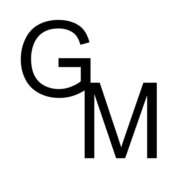Best International Trade Law Lawyers in Dominican Republic
Share your needs with us, get contacted by law firms.
Free. Takes 2 min.
Or refine your search by selecting a city:
List of the best lawyers in Dominican Republic
About International Trade Law in Dominican Republic
International Trade Law in the Dominican Republic is designed to regulate and facilitate the exchange of goods and services between the country and other nations. The legal framework encompasses various international agreements, treaties, and domestic laws that ensure compliance with global trade standards. These laws aim to promote fair competition, safeguard local industries, and encourage foreign investment. The Dominican Republic is a member of the World Trade Organization (WTO) and a signatory to several free trade agreements, which shape its trade policies and legal obligations.
Why You May Need a Lawyer
Engaging in international trade involves navigating a complex landscape of regulations and compliance requirements. Here are common scenarios where you might need legal assistance:
- Contractual Agreements: To draft or review contracts ensuring compliance with Dominican trade laws and international standards.
- Customs and Tariffs: Understanding and resolving issues related to customs duties, tariffs, and import/export licenses.
- Dispute Resolution: Handling disputes or litigation arising from trade transactions or breaches of agreement.
- Regulatory Compliance: Ensuring adherence to local and international trade regulations to avoid penalties.
- Intellectual Property: Protection of trademarks, patents, or copyrights in international transactions.
Local Laws Overview
Key aspects of Dominican trade laws relevant to international trade include:
- Free Trade Agreements (FTAs): The Dominican Republic is part of various FTAs, such as the Dominican Republic-Central America Free Trade Agreement (DR-CAFTA), facilitating easier trade terms with member countries.
- Customs Law: The Customs Directorate governs the import and export process, demanding compliance with specific protocols and documentation.
- Tax Legislation: Understanding the system of import taxes and potential benefits under FTAs is crucial for businesses.
- Trade Dispute Resolution: Available mechanisms through local courts or arbitration under the Commercial Arbitration Law provide avenues to resolve trade disputes.
- Investment Promotion Laws: Laws that encourage foreign investment by offering incentives and ensuring investor protection are pivotal to the trade environment.
Frequently Asked Questions
1. What is the role of customs in international trade in the Dominican Republic?
The Customs Directorate oversees the regulation and facilitation of international trade, enforcing customs laws, collecting import duties, and preventing smuggling.
2. Are there any incentives for international businesses in the Dominican Republic?
Yes, the country offers various incentives, such as tax breaks or duty exemptions, particularly in free trade zones or under specific investment promotion laws.
3. What is DR-CAFTA?
The Dominican Republic-Central America Free Trade Agreement is an FTA aimed at eliminating trade barriers among member countries, promoting regional trade expansion.
4. How can I ensure my contracts are compliant with Dominican trade laws?
Consulting with a legal professional knowledgeable in international trade is crucial for ensuring contracts meet all legal requirements and international standards.
5. What actions can I take if I have a trade dispute?
You can utilize local courts or arbitration methods prescribed by Dominican law or as agreed within your contract to resolve trade disputes.
6. Do I need a local partner to do business in the Dominican Republic?
While it is not mandatory to have a local partner, engaging one can facilitate better navigation of local regulations and business practices.
7. How are import duties calculated?
Import duties are generally calculated based on the classification and value of the goods, according to the Harmonized System (HS) code and domestic tariff schedules.
8. What are common barriers to trade in the Dominican Republic?
Challenges may include bureaucratic processes, variable import duties, and regulations requiring compliance with local standards and certifications.
9. Can I protect my intellectual property rights on trade goods?
Yes, securing trademarks, patents, or copyrights in the Dominican Republic can protect your intellectual property involved in international trade.
10. What documentation is required for importing goods?
Typically, you need an import license, commercial invoice, bill of lading, and certificates of origin, among other documentation, as per customs regulation.
Additional Resources
Here are some resources to help you navigate international trade law in the Dominican Republic:
- Customs Directorate: Ensure compliance with customs requirements by consulting their guides and documentation.
- Ministry of Industry and Commerce: Offers resources on investment incentives and trade opportunities.
- Chamber of Commerce: Provides information and support to foreign businesses entering the Dominican market.
- World Trade Organization (WTO): For guidelines and principles governing international trade that the Dominican Republic adheres to.
Next Steps
If you require legal assistance in international trade law, consider taking the following actions:
- Consult with a Lawyer: Engage a local attorney specializing in international trade law to discuss your specific needs and legal questions.
- Research and Due Diligence: Gather information and understand your obligations and rights under the Dominican trade law framework.
- Engage with Industry Experts: Connect with trade advisors or consultants who can provide strategic insights into international business operations.
Lawzana helps you find the best lawyers and law firms in Dominican Republic through a curated and pre-screened list of qualified legal professionals. Our platform offers rankings and detailed profiles of attorneys and law firms, allowing you to compare based on practice areas, including International Trade Law, experience, and client feedback.
Each profile includes a description of the firm's areas of practice, client reviews, team members and partners, year of establishment, spoken languages, office locations, contact information, social media presence, and any published articles or resources. Most firms on our platform speak English and are experienced in both local and international legal matters.
Get a quote from top-rated law firms in Dominican Republic — quickly, securely, and without unnecessary hassle.
Disclaimer:
The information provided on this page is for general informational purposes only and does not constitute legal advice. While we strive to ensure the accuracy and relevance of the content, legal information may change over time, and interpretations of the law can vary. You should always consult with a qualified legal professional for advice specific to your situation.
We disclaim all liability for actions taken or not taken based on the content of this page. If you believe any information is incorrect or outdated, please contact us, and we will review and update it where appropriate.
Browse international trade law law firms by city in Dominican Republic
Refine your search by selecting a city.















